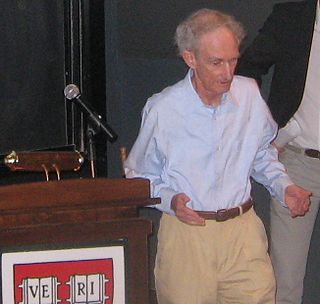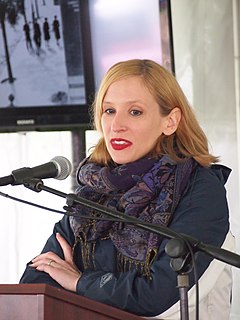A Quote by Bruce H. Lipton
Recently, results of the Human Genome Project have shattered one of Science's fundamental core beliefs, the concept of genetic determinism. We have been led to believe that our genes determine the character of our lives, yet new research surprisingly reveals that it is the character of our lives that controls our genes. Rather than being victims of our heredity, we are actually masters of our genome.
Quote Topics
Actually
Been
Being
Beliefs
Believe
Character
Concept
Controls
Core
Core Beliefs
Determine
Determinism
Fundamental
Genes
Genetic
Genome
Genome Project
Heredity
Human
Human Genome Project
Led
Lives
Masters
New
Our
Our Lives
Project
Rather
Recently
Research
Results
Reveals
Science
Shattered
Surprisingly
Than
Victims
Related Quotes
Undeniably, character does count for our citizens, out communities, and our Nation, and this week we celebrate the importance of character in our individual lives... core ethical values of trustworthiness, fairness, responsibility, caring, respect, and citizenship form the foundation of our democracy, our economy, and our society... Instilling sound character in our children is essential to maintaining the strength of our Nation into the 21st century.
Our beliefs about ourselves in relation to the world around us are the roots of our values, and our values determine not only our immediate actions, but also, over the course of time, the form of our society. Our beliefs are increasingly determined by science. Hence it is at least conceivable that what science has been telling us for three hundred years about man and his place in nature could be playing by now an important role in our lives.
Schwartz's research suggests something important: we can stretch our personalities, but only up to a point. Our inborn temperaments influence us, regardless of the lives we lead. A sizeable part of who we are is ordained by our genes, by our brains, by our nervous systems. And yet the elasticity that Schwartz found in some of the high-reactive teens also suggests the converse: we have free will and can use it to shape our personalities.
We will have to make a decision, as we go into new environments outside of earth, whether we want to drag along with us all our pathogens. We can, or we can't - it's up to us - but I consider that part of genome engineering is how we interact with the huge part of our genome which is our microbiome.
Human beings do not carry civilization in their genes. All that we do carry in our genes are certain capacities- the capacity to learn to walk upright, to use our brains, to speak, to relate to our fellow men, to construct and use tools, to explore the universe, and to express that exploration in religion, in art, in science, in philosophy.
Banning human cloning reflects our humanity. It is the right thing to do. Creating a child through this new method calls into question our most fundamental beliefs. It has the potential to threaten the sacred family bonds at the very core of our ideals and our society. At its worst, it could lead to misguided and malevolent attempts to select certain traits, even to create certain kind of children -- to make our children objects rather than cherished individuals.
































